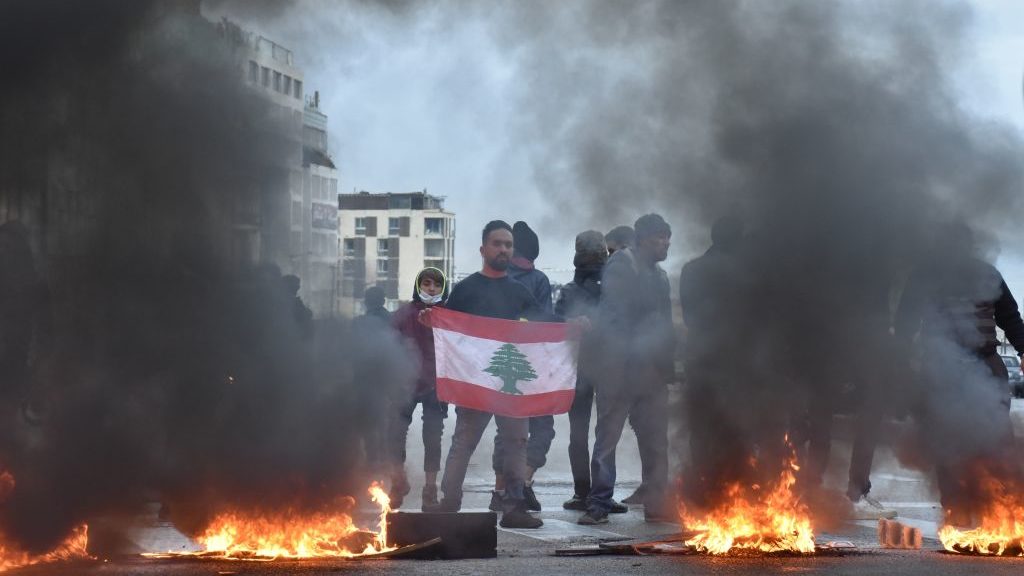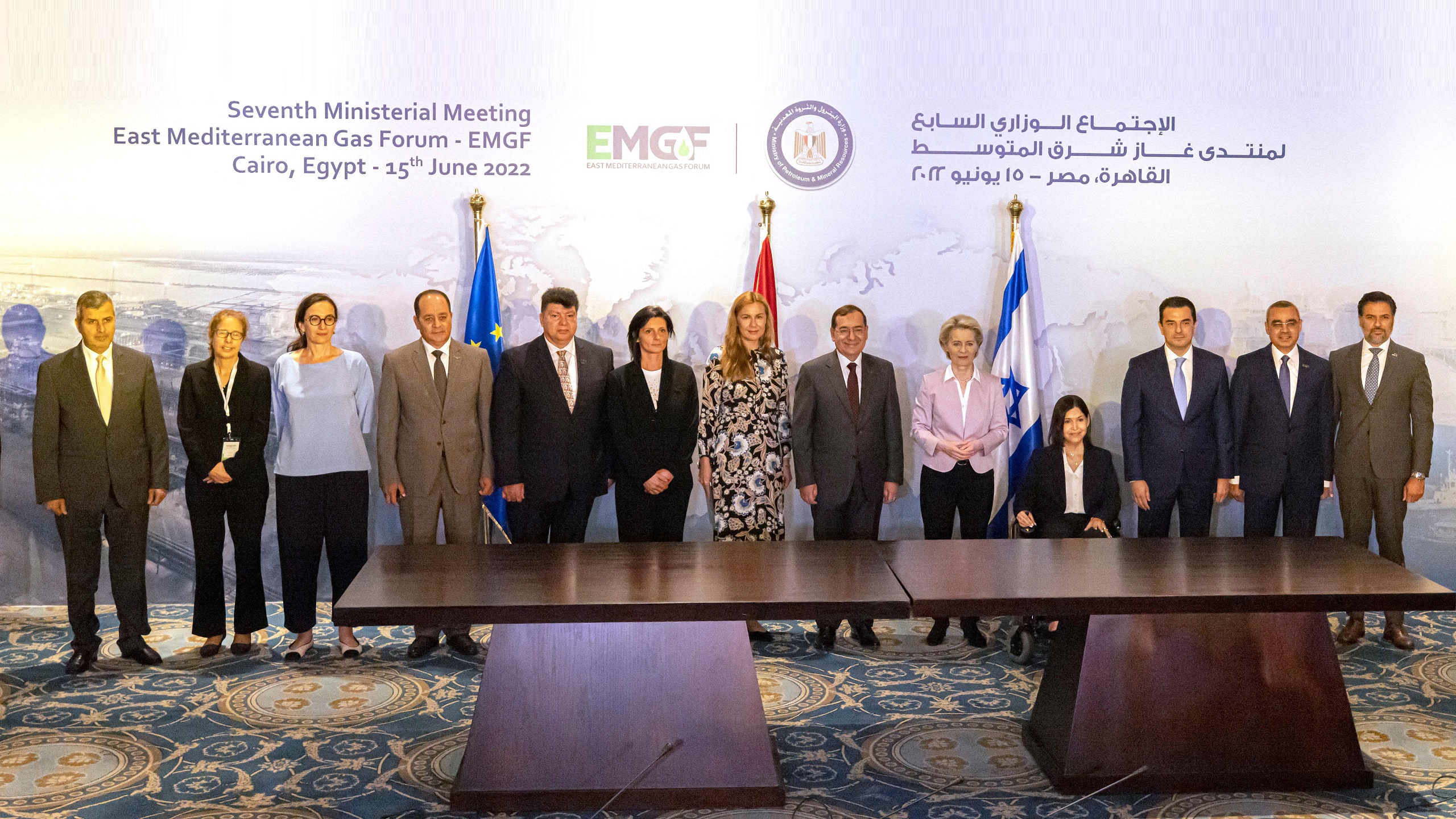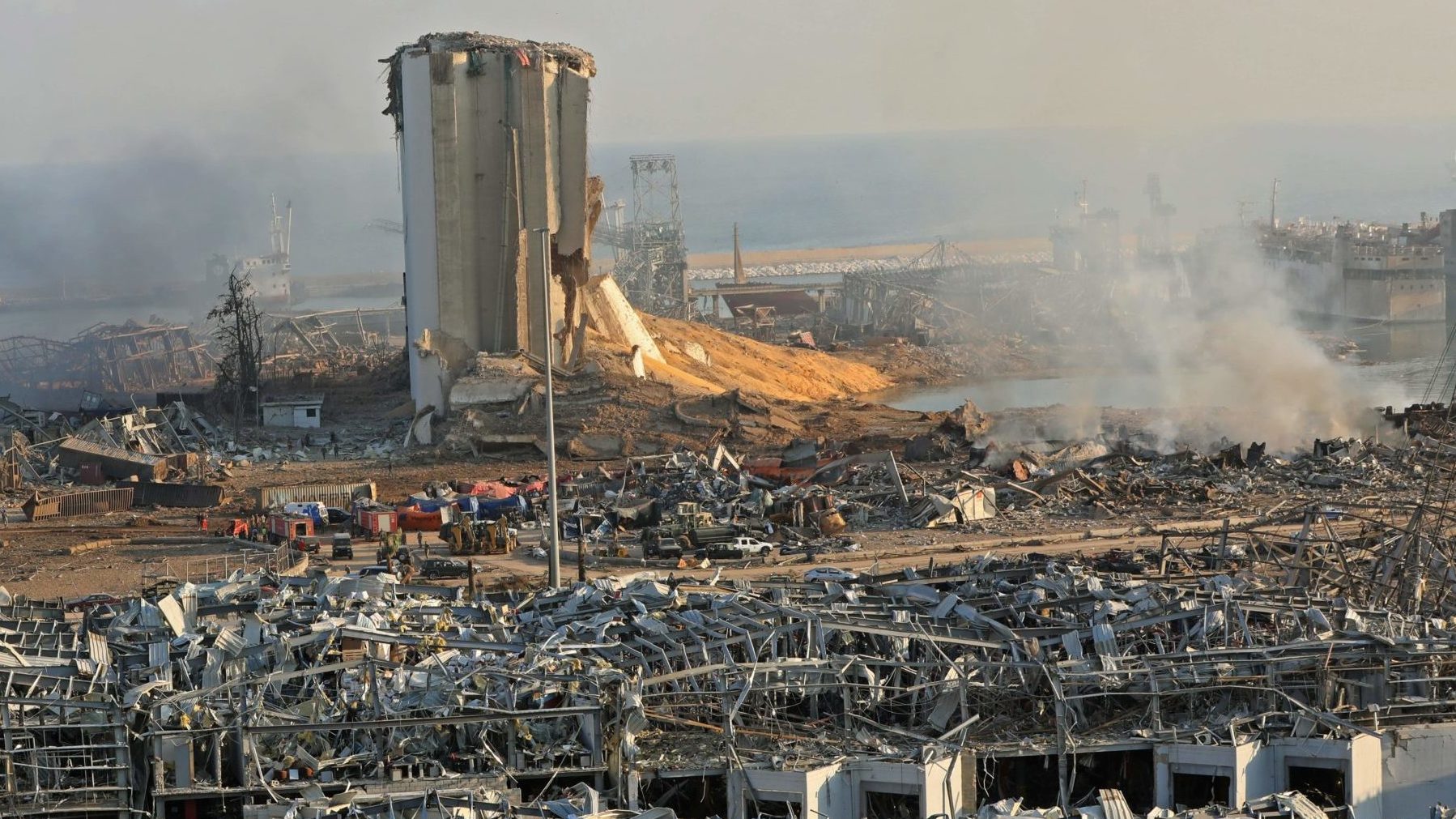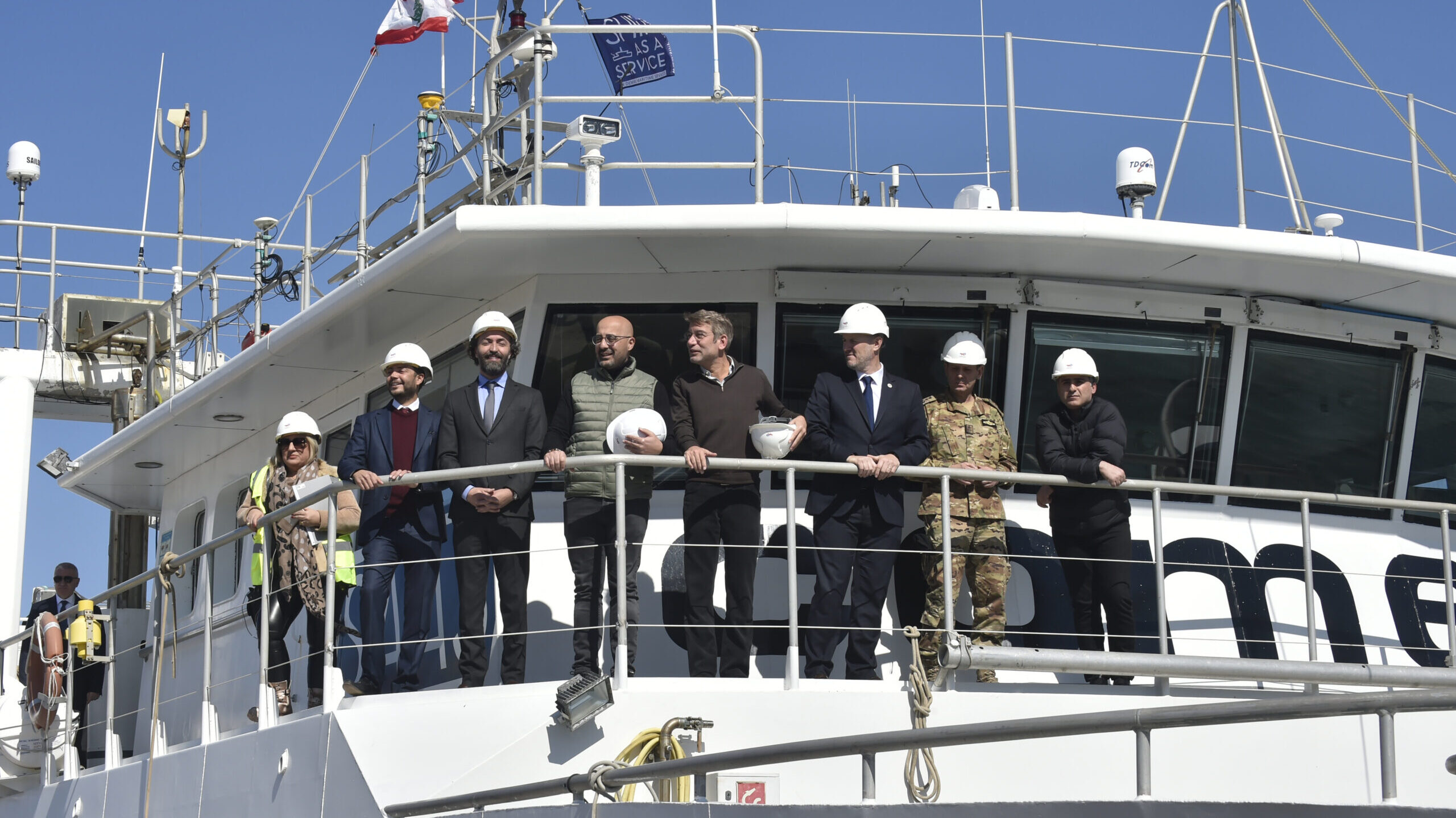Lebanon To Start Gas Drilling by Summer, but Reaping Benefits Will Take Time
Middle East and North Africa Director at World Economic Forum tells TML that the gas revenue should not be expected to be the beleaguered country's ‘savior' or a replacement for long-delayed political reforms
Lebanese Energy and Water Minister Walid Fayad announced Friday that the country will start drilling gas in its maritime territory in the Mediterranean by the summer. And although the industry may seem like one of high revenue, experts warn that it will take a long time before any profits can significantly improve Lebanon’s struggling economy.
The move comes three months after Lebanon and Israel signed a maritime border demarcation deal that was negotiated for more than a decade via American mediation. Israel and Lebanon are officially at war and have no diplomatic ties.
In context: According to a World Bank report issued in 2022, Lebanon is experiencing one of the three most severe economic crises in global modern history. The small Eastern Mediterranean country’s currency has now lost more than 95% of its value since 2019; close to one-third of its population is unemployed; and, according to the United Nations, some 80% of the population lives under the poverty line.

Anti-government protestors block roads with garbage containers and burning tires during a demonstration at Martyrs’ Square in Beirut, Lebanon on March 3, 2021. (Mahmut Geldi/Anadolu Agency via Getty Images)
Lebanon’s multitude of problems include the lack of means for electricity production, with the Lebanese people having only a handful of hours of electricity per day.
So while drilling for natural gas could offer a ray of hope for the economically sinking country, there is still a long way to go.
Maroun Keyrouz, the director for the Middle East and North Africa at the World Economic Forum, told The Media Line that the process of getting gas to market can take more than five from the moment that exploration starts. This is also “assuming the process is efficient, which is far from guaranteed given the governance vacuum in Lebanon at the moment,” he said.
Therefore, Keyrouz added, “it will still be a while before the country starts receiving income flows from its potential hydrocarbon resources.”
Keyrouz also stressed that the gas revenue should not be expected to be the “country’s savior” or a replacement for long-delayed political reforms, citing other countries that generated significant revenues from oil and gas sources but still failed to develop their economies.
He said that some experts have estimated Lebanese revenues in the range of $1-2 billion per year from the production of gas, while the country’s current debt exceeded 3 billion USD in 2021.
“It illustrates the fact that it [the gas revenue] can be an assisting factor in sanitizing the country’s external sector, but it is unlikely to be in itself sufficient to transform the country’s outlook,” Keyrouz said, reiterating that it will take several years to reach that “peak” production worth $1-2 billion.
As such, he believes that the most promising use for the gas in the first few years would be for the internal market, specifically in the urgently needed generation of electricity.
Marwan Abdallah, the Executive Director of the Organization for Petroleum & Energy Sustainability (OPES – Lebanon), told The Media Line that Lebanon’s path to becoming an oil and gas exporting country was still a long one.
Abdallah said that when it comes to exports, Lebanon is in a complicated position considering its two neighboring countries. On the one hand, he noted, there is Israel to the south, with whom Lebanon has no ties at all, and therefore no economic cooperation can be expected; on the other hand, there is Syria to the north and east, which is a sanctioned regime, especially in the sectors of infrastructure and energy.
“This leaves us with little option of a solo exporting strategy, which can be costly, or coordinating with Cyprus, which is already in a strategic partnership with Israel and other members of the East Mediterranean Gas Forum,” he said.

European Commission President Ursula von der Leyen (5th-R) poses for a group photo with the EU Commissioner for Energy Kadri Simson (7th-R), Egypt’s Minister of Petroleum Tarek el-Molla (6th-R), Israeli Minister of Energy Karine Elharrar (4th-R), and other officials during the signing ceremony of a trilateral natural gas deal during the ministerial meeting of the East Mediterranean Gas Forum in Cairo on June 15, 2022. (Khaled Desouki/AFP via Getty Images)
According to Keyrouz, one must also consider the outlook for the global oil and gas market in five years, the estimated time it will take Lebanese gas to reach the market. It is still in question “whether there will still be an appetite to import gas from expensive and unstable locations, in light of Europe’s energy transition,” he said, citing a report earlier this week in The Economist that estimated that the current energy crisis might have accelerated the European energy transition by 5-10 years.
Ahmed Alqarout, a London-based MENA political economy analyst, said that in the short term, Lebanon will benefit from starting gas exploration as it will generate economic activity, creating jobs and subcontracting opportunities for locals.
Alqarout said that the creation of a gas industry in Lebanon might also restore some trust in the country’s economy. However, he said, “given that Lebanon’s problems are deeper, additional revenue will not necessarily lead to better political outcomes or living standards for struggling Lebanese citizens.”
Keyrouz said that in theory, there should be safeguards in Lebanon’s frameworks to protect against mismanagement and corruption. But in practice, he said, there were two main concerns.
The first one, he said, was the lack of the state’s capacity to manage these resources. He cited “the gross mismanagement of funds under the National Social Security Fund, which was mostly invested in Lebanese government bonds, and the failure of the Ministry of Transportation to operationalize a donation of buses from France to provide some extent of public transportation coverage.”
Secondly, he said, “oftentimes in Lebanon, the problem related to corruption lies not with the legal frameworks, but actual practice. One only needs to look at the investigation into the Beirut port blast.” He was referring to the August 2020 explosion in the capital’s seaport, which killed more than 200 people and was caused by the illegal storage of 2,750 tonnes of ammonium nitrate at the site.

Beirut port’s grain silo is shown the day after the August 4, 2020 explosion. (Anwar Amro/AFP via Getty Images)
Currently, three foreign companies hold licenses to carry out gas exploration with Lebanon: France’s TotalEnergies; Eni of Italy; and Qatari state-owned QatarEnergy. The latter replaced Russia’s Novatek, which due to “economic and financial reasons” and “political risk,” pulled out of the joint venture last year.
Regarding risk for foreign companies’ investment in Lebanese gas exploration, Abdallah said that the oil and gas sector is always very risky, and the major energy companies have their ways of operating in risky environments. “Lebanon won’t be a new case for them,” he said.
Even so, he warned, “domestic political turmoil and instability can be the major setback because it might delay the work and cause Lebanon economic and financial losses along the line.”


